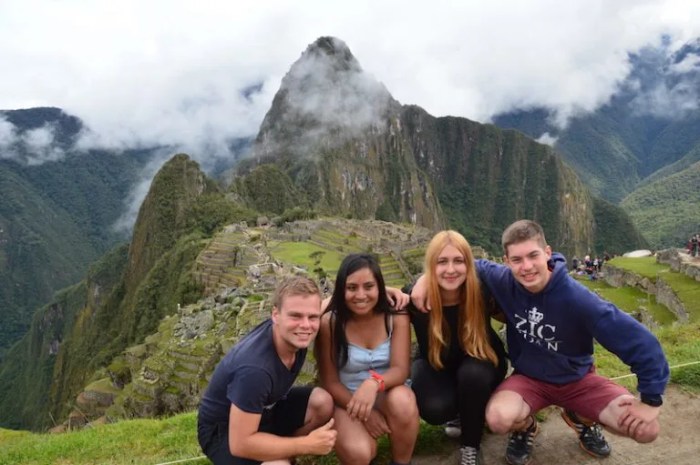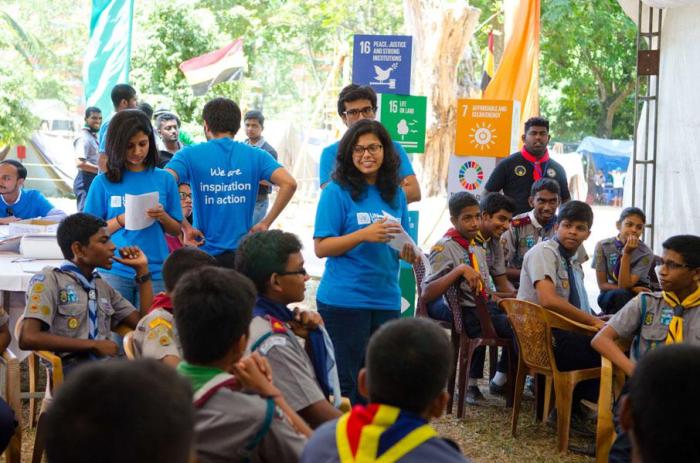Volunteerism in Latin America and the Caribbean (voluntariado en latinoamérica y el caribe) has a rich history and plays a crucial role in shaping the region’s social, economic, and environmental landscapes. With its diverse range of opportunities and dedicated volunteers, volunteerism continues to make a profound impact on communities throughout the region.
From education and healthcare to disaster relief and environmental conservation, volunteerism empowers individuals to contribute their skills and time to addressing pressing issues. This engagement fosters a sense of community, strengthens civic participation, and promotes sustainable development.
Volunteerism in Latin America and the Caribbean: Overview

Volunteerism has a rich history and tradition in Latin America and the Caribbean (LAC), dating back to the colonial era. In recent decades, volunteerism has experienced significant growth, driven by social, economic, and political factors.
According to the Inter-American Development Bank, over 10% of the population in LAC engages in volunteer activities, with higher rates in countries like Costa Rica and Chile. Volunteerism is particularly prevalent in the areas of education, healthcare, and community development.
Volunteers in LAC are typically motivated by a desire to make a positive contribution to their communities and to address social issues. They come from diverse backgrounds and include youth, adults, professionals, and retirees.
Types of Volunteer Opportunities
| Category | Description | Examples |
|---|---|---|
| Social Services | Opportunities focused on providing assistance to individuals and communities in need. | – Education (tutoring, mentoring)
|
| Environmental Conservation | Opportunities related to protecting and preserving the natural environment. | – Reforestation
|
| Disaster Relief | Opportunities to provide assistance in the aftermath of natural disasters or emergencies. | – Search and rescue
|
| Human Rights Advocacy | Opportunities to promote and defend human rights and social justice. | – Raising awareness
|
Impact of Volunteerism on Communities: Voluntariado En Latinoamérica Y El Caribe
Volunteerism has a wide range of positive impacts on communities in LAC, including:
- Improved social cohesion and community development: Volunteers help build stronger relationships within communities and foster a sense of belonging.
- Enhanced access to education, healthcare, and other essential services: Volunteers play a vital role in providing essential services to underserved communities.
- Increased civic engagement and participation: Volunteerism encourages individuals to become more involved in their communities and participate in the decision-making process.
Challenges and Opportunities for Volunteerism
Despite its growth, volunteerism in LAC faces several challenges, including:
- Lack of funding and resources: Many volunteer organizations struggle to secure adequate funding to support their programs.
- Cultural barriers and misconceptions about volunteerism: In some cultures, volunteerism is not widely recognized or valued.
However, there are also significant opportunities for the growth and expansion of volunteerism in LAC, such as:
- Collaboration between governments, nonprofits, and businesses: Partnerships can leverage resources and expertise to support volunteer initiatives.
- Development of innovative volunteer models: New approaches to volunteerism, such as micro-volunteering and skills-based volunteering, can make it easier for people to participate.
Best Practices for Volunteer Management

Effective volunteer management is crucial for the success of volunteer programs. Best practices include:
- Recruitment and screening of volunteers: Carefully selecting volunteers who are aligned with the organization’s mission and values.
- Training and development opportunities: Providing volunteers with the skills and knowledge they need to be effective.
- Volunteer recognition and appreciation: Expressing gratitude for the contributions of volunteers and making them feel valued.
Case Studies of Successful Volunteer Initiatives

There are numerous successful volunteer initiatives in LAC that have made a significant impact on communities, including:
- Projeto Axé:A Brazilian organization that provides educational and social services to marginalized youth in Rio de Janeiro.
- Habitat for Humanity:An international organization that builds affordable housing in partnership with local volunteers.
- REDES:A network of organizations in Central America that promotes volunteerism and community development.
Answers to Common Questions
What are the key motivations for volunteerism in Latin America and the Caribbean?
Volunteers in the region are driven by a desire to make a positive impact on their communities, address social issues, and contribute to sustainable development.
How does volunteerism contribute to social cohesion and community development?
Volunteerism fosters a sense of belonging, strengthens relationships, and promotes collaboration within communities, leading to improved social cohesion and overall well-being.
What are the common challenges faced by volunteer organizations in the region?
Volunteer organizations often face challenges related to funding constraints, limited resources, and cultural misconceptions about the role of volunteerism.
How can volunteerism be effectively managed to maximize its impact?
Effective volunteer management involves careful recruitment, training, and recognition of volunteers, as well as ongoing evaluation and support.